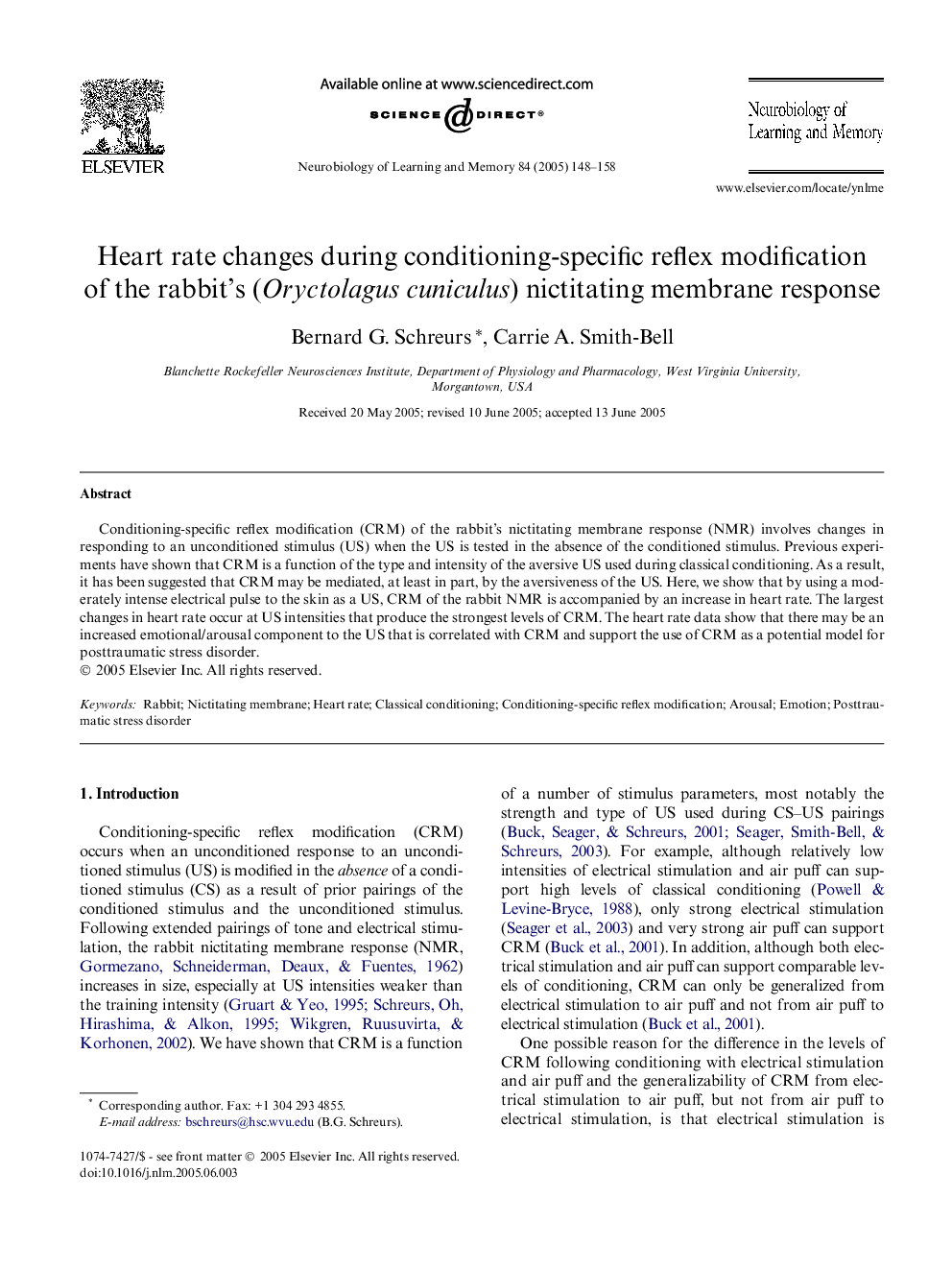| Article ID | Journal | Published Year | Pages | File Type |
|---|---|---|---|---|
| 9723255 | Neurobiology of Learning and Memory | 2005 | 11 Pages |
Abstract
Conditioning-specific reflex modification (CRM) of the rabbit's nictitating membrane response (NMR) involves changes in responding to an unconditioned stimulus (US) when the US is tested in the absence of the conditioned stimulus. Previous experiments have shown that CRM is a function of the type and intensity of the aversive US used during classical conditioning. As a result, it has been suggested that CRM may be mediated, at least in part, by the aversiveness of the US. Here, we show that by using a moderately intense electrical pulse to the skin as a US, CRM of the rabbit NMR is accompanied by an increase in heart rate. The largest changes in heart rate occur at US intensities that produce the strongest levels of CRM. The heart rate data show that there may be an increased emotional/arousal component to the US that is correlated with CRM and support the use of CRM as a potential model for posttraumatic stress disorder.
Keywords
Related Topics
Life Sciences
Neuroscience
Behavioral Neuroscience
Authors
Bernard G. Schreurs, Carrie A. Smith-Bell,
